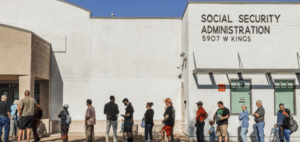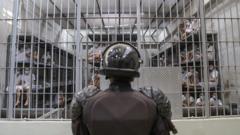In a surprising move, President Nayib Bukele of El Salvador has suggested jailing convicts deported from the United States, prompting questions about the feasibility and legality of such an arrangement. During a visit to Central America, Secretary of State Marco Rubio acknowledged the offer, stating it “might require further examination” but labeled it a “generous proposal.” This plan, however, raises significant legal challenges, especially regarding the deportation of U.S. citizens.
El Salvador's Proposal on U.S. Deportees: A Controversial Solution

El Salvador's Proposal on U.S. Deportees: A Controversial Solution
El Salvador's President Nayib Bukele has raised eyebrows with his proposal to house deported U.S. criminals, igniting a complex conversation on human rights and law enforcement.
Bukele's prison system, known for its strict policies, has attracted attention as a potential solution for managing the influx of deported individuals. Yet, it has faced scrutiny over alleged human rights violations and overcrowding concerns, with critics arguing that innocent lives are often at stake amid the aggressive anti-gang measures carried out by the government. Even though the idea may never materialize, analysts suggest it symbolizes a shared tough-on-crime approach between the two nations, appealing to populist sentiments in addressing crime both domestically and abroad.
The intersection of law, human rights, and immigration continues to be a hotbed for debate as Bukele's intentions unfold, prompting wider discussions on the moral implications of such a proposal.
The intersection of law, human rights, and immigration continues to be a hotbed for debate as Bukele's intentions unfold, prompting wider discussions on the moral implications of such a proposal.



















